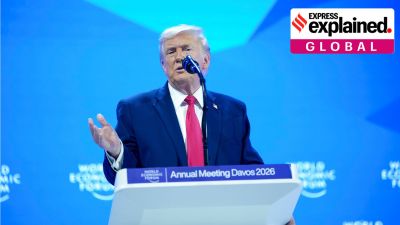This outrage is phoney
Bal Thackeray's formal arrest and prompt discharge by a Mumbai city court leave behind an enormous sense of anti-climax and some questions...

Bal Thackeray8217;s formal arrest and prompt discharge by a Mumbai city court leave behind an enormous sense of anti-climax and some questions. If this was to be the denouement, why the whole nail-biting drama? Didn8217;t the Maharashtra government know that its case was weak and would be dismissed? Or did it know this and pressed ahead nevertheless? Was the entire drama orchestrated by the lead players for political advantage? And what do we do now with our outrage? Ever since it began on July 15, when the Congress-NCP government gave the go-ahead to prosecute Thackeray in a case registered seven years ago in the aftermath of the 1992-93 riots, the issue has been splashed across the front pages of all daily newspapers.
There has been extensive reportage, and much editorial comment. Moral indignation has been vented against the Shiv Sena chief8217;s threats to bring Mumbai, even the country, to a halt, should he be arrested. Anger has been expressed at the protracted prevarication by the state government in making the final move, at the all-too-visible backroom lobbying by BJP firefighters to protect the party8217;s long-time ally. There have been loud invocations of the rule of law8217; as Thackeray was, yet again, berated for being a law unto himself.
The party supremo8217; who has long wielded the fabled remote control8217;, the extra constitutional8217; centre of power the government is scared to touch despite the scathing indictment by the Srikrishna Commission. In retrospect, there was something spurious about this outrage, about the instant drawing of neat battlelines. Them versus us. Shiv Sena rabblerousers and their despotic chief versus the rest of us. The fact is that we are no strangers to authoritarian larger-than-life party supremos. We even regularly vote them into power.
Laloo Prasad Yadav, Kanshi Ram, Jayalalitha deities all at whose feet dwarfed partymen routinely prostrate themselves, quite literally so. Nor has Thackeray been the only brandisher of the remote control. Everybody knows that Laloo Prasad Yadav is the real Chief Minister in the government his wife heads in Bihar. Over the years, there has been little or no sanctity attached to commissions of inquiry, either. We have witnessed many a commission meandering into a political dead end.
The Liberhans commission instituted to inquire into the Babri Masjid demolition is still weaving its longwinding journey to nowhere. Even when conclusive reports are submitted, they are acted upon only when the results suit the government of the day. It is an open secret that these commissions and their reports are merely used by governments to deflect the urgency to act, as pressure vents that help let off steam. So that life returns to normal, so that things can go on as before.
We the middle classes also share a fascination for macho supermen and their methods. We court and are willingly courted by the superbureaucrat be it Seshan, Khairnar or Vittal who shows impatience with the due process of law and takes it into his own hands. The CVC8217;s hitlist on the Net, as also Seshan8217;s strongarm tactics earlier, draw their flourish from our approval.
Why the furore, then, and why the moral fuss over Thackeray? For one, Thackeray is too obvious, much too brazen a blackguard to escape censure. He does what he does completely without apology or fig leaf. Further, exclaiming over Thackeray provides us an irresistible opportunity to feel virtuous. It alleviates the need to confront our own contradictions. It is comfortable, we have discovered, to pose democracy and authoritarianism as irreconcilable opposites and to take our place on the politically correct side of the dividing line.
As the Thackeray drama shows signs of winding up, another opportunity has been lost. To acknowledge our own culpability for his reputation for terror, his formidable invincibility over 30 long years. To confront our own ambivalence. To recognise that Bal Thackeray is not an individual aberration in the system. He is a syndrome. We will never be free of it unless we admit we are part of it.
- 01
- 02
- 03
- 04
- 05































